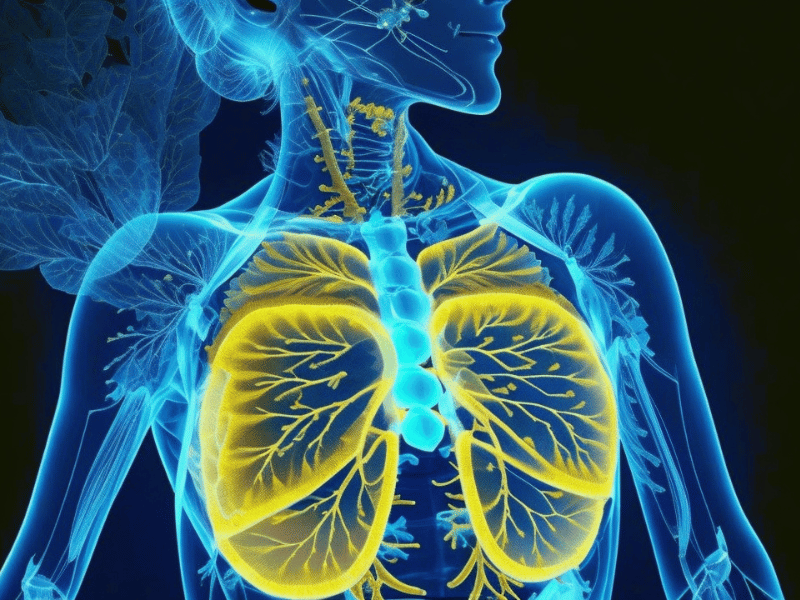Breathing Techniques for Weight Loss: The Ultimate Guide
Introduction
The quest for weight loss has led many to explore a myriad of options, from rigorous exercise regimens to strict dietary plans. However, one often overlooked aspect is the role of breathing in weight loss. Yes, you read that right—breathing techniques can be a game-changer in your weight loss journey.
The Science Behind Breathing and Weight Loss
How Breathing Affects Metabolism
Breathing is not just an involuntary action; it plays a crucial role in our metabolism. Oxygen is a key player in the metabolic process, aiding in the conversion of nutrients into energy. A study by Anand B. Shetty at Hampton University revealed that deep-breathing techniques could change the brain's metabolic activity and decrease BMI in teens with obesity (source).
Oxygen and Fat Burning
The more oxygen we inhale, the more fat we burn. This is because fat oxidation requires a certain amount of oxygen to convert stored fat into energy. A PubMed study on the "Senobi" breathing exercise found that it led to up-regulation of sympathetic nerve activity and increased hormone secretion in overweight women, resulting in significant loss of body fat (source).
Types of Breathing Techniques
Deep Breathing
Deep breathing, also known as diaphragmatic breathing, involves inhaling deeply through the nose, filling the lungs completely, and exhaling through the mouth.
What It Is and How to Do It
To practice deep breathing, sit or lie down in a comfortable position. Place one hand on your chest and the other on your abdomen. Inhale deeply through your nose, allowing your abdomen to rise as you fill your lungs. Exhale completely through your mouth, feeling your abdomen fall.
Scientific Evidence
Deep breathing activates the parasympathetic nervous system, aids in digestion, and promotes weight loss. It provides cells with oxygen and helps absorb nutrients, making it a valuable addition to any weight-loss program (source).
Diaphragmatic Breathing
What It Is and How to Do It
Diaphragmatic breathing is similar to deep breathing but focuses more on the diaphragm. Sit comfortably with your back straight. Inhale deeply through your nose, allowing your diaphragm to expand. Exhale slowly through your mouth.
Comparison with Deep Breathing
While both techniques involve deep inhalations and exhalations, diaphragmatic breathing places more emphasis on engaging the diaphragm, potentially offering more targeted benefits for weight loss.
Box Breathing
What It Is and How to Do It
Box breathing involves inhaling, holding the breath, exhaling, and holding the breath again, each for a count of four. This technique is often used to reduce stress but can also aid in weight loss by improving metabolic function.
Benefits Beyond Weight Loss
Box breathing is not only effective for weight loss but also has other health benefits such as reducing stress and improving mental well-being. Stress is often a contributing factor to weight gain, and managing it through techniques like box breathing can be highly beneficial.
Breathing Techniques vs. Traditional Weight Loss Methods
Comparison with Diet and Exercise
While traditional methods like diet and exercise are effective, they often require a significant time commitment and physical effort. Breathing techniques offer a more accessible and less strenuous alternative. However, for optimal results, it's best to combine breathing exercises with traditional methods.
Pros and Cons
| Method | Pros | Cons |
|---|---|---|
| Diet | Targeted, Scientifically Proven | Requires Discipline, Potential Nutrient Deficiency |
| Exercise | Builds Muscle, Increases Stamina | Time-Consuming, Risk of Injury |
| Breathing Techniques | Easy to Implement, Low Risk | Less Immediate Results, Best When Combined with Other Methods |
Advanced Breathing Techniques and Real-World Applications
Advanced Breathing Techniques for Weight Loss
Kapalbhati: The Shining Skull Technique
What It Is and How to Do It
Kapalbhati, also known as the "shining skull" technique, is a form of Pranayama that involves forceful exhalation. To perform this, sit in a comfortable position, inhale normally, and exhale forcefully through your nose, pulling your navel back towards your spine.
Scientific Evidence
Kapalbhati has been found to be an effective way to control obesity and lose weight naturally. It raises your metabolic function and burns fat faster, according to a study cited by Stylecraze (source).
Bahya Kumbhaka: External Breath Retention
What It Is and How to Do It
Bahya Kumbhaka involves inhaling deeply, exhaling completely, and then holding the breath while contracting the abdominal muscles. This technique is particularly effective for those looking to lose belly fat.
Benefits Beyond Weight Loss
In addition to aiding weight loss, Bahya Kumbhaka is also known for its ability to improve digestive health and relieve stress, making it a holistic approach to wellness.
Senobi Breathing
What It Is and How to Do It
Originating from Japan, Senobi breathing involves stretching your arms and taking deep breaths. This technique has been found to be a "first line treatment" for obesity according to a study published on PubMed (source).
Scientific Evidence
The study found that Senobi breathing led to up-regulation of sympathetic nerve activity and increased hormone secretion in overweight women, resulting in significant loss of body fat.
Real-World Applications and Case Studies
Case Study 1: Senobi Breathing in Pre-Menopausal Women
A study involving 40 pre-menopausal women aged between 40 to 50 years found that practicing Senobi breathing led to a significant loss of body fat. The study concluded that this breathing exercise is effective for weight loss in obesity by regulating the autonomic nervous system and hormone secretion (source).
Case Study 2: Deep Breathing in Teens
Anand B. Shetty's study at Hampton University involved teens practicing deep-breathing techniques. The study found a decrease in BMI and a change in the brain's metabolic activity, highlighting the potential of deep breathing in weight management for younger populations (source).
Real-Life Example: Yoga Studios
Many yoga studios now offer classes focused solely on breathing techniques for weight loss, combining ancient wisdom with modern science. These classes often incorporate Kapalbhati and Bahya Kumbhaka, among other techniques, providing a comprehensive approach to weight loss.
Incorporating Breathing Techniques into Your Daily Routine
Morning Rituals
Starting your day with a 10-minute breathing exercise can set a positive tone for the rest of the day. It not only aids in weight loss but also helps in reducing stress and improving focus.
During Work Breaks
Taking short breaks to practice breathing exercises can help you stay relaxed and focused, making your workday more productive while contributing to your weight loss goals.
Before Bed
Practicing breathing techniques before bed can improve the quality of your sleep, which is crucial for weight loss. Poor sleep can lead to weight gain, and incorporating breathing exercises into your bedtime routine can help combat this.
| Time of Day | Suggested Breathing Technique | Duration |
|---|---|---|
| Morning | Kapalbhati | 10 mins |
| Work Breaks | Box Breathing | 5 mins |
| Before Bed | Deep Breathing | 10 mins |
FAQs, Testimonials, and Additional Resources
Frequently Asked Questions (FAQs)
Can you lose weight just by breathing?
Yes, breathing techniques can aid in weight loss by improving metabolic function and reducing stress. However, they are most effective when combined with a balanced diet and regular exercise.
How long does it take to see results?
The time it takes to see results can vary depending on the individual and the specific breathing technique used. However, most people report noticeable changes within a few weeks of consistent practice.
Are there any risks involved?
Breathing techniques are generally considered safe. However, if you have any pre-existing medical conditions, it's advisable to consult a healthcare provider before starting any new exercise regimen.
Do breathing techniques burn calories?
While the calorie-burning potential of breathing exercises is relatively low compared to traditional exercise methods, they can still contribute to weight loss by improving metabolic function and reducing stress.
How do breathing techniques compare to traditional weight loss methods?
Breathing techniques offer a less strenuous and more accessible alternative to traditional weight loss methods like diet and exercise. However, for optimal results, it's best to combine breathing exercises with traditional methods.
Testimonials and Case Studies
Testimonial 1: Sarah's Journey
Sarah, a 35-year-old mother, found success with Kapalbhati breathing. She practiced it for 10 minutes every day for a month and lost 5 pounds. "It's a game-changer," she says. You can read her full story here.
Testimonial 2: Mark's Transformation
Mark, a 50-year-old businessman, incorporated Bahya Kumbhaka into his daily routine and saw a significant reduction in his waistline within two months. His story is featured on Men's Health.
Additional Resources
Books
- "The Oxygen Advantage" by Patrick McKeown
- "Just Breathe: Mastering Breathwork for Success in Life, Love, Business, and Beyond" by Dan Brulé
Apps
Courses
By the way, you can join our Pathfinders Community To Rediscover Your AUTHENTIC SELF and Begin Living by YOUR DESIGN and not by DEFAULT.
Experience The Power Of Taking Back Control Of Your Life
Claim Your Free Value From Tim Wagner
Experience Stress Relief

Previous Live Breathwork Journeys - Instant Stress Relief
Unlock Your Potential

Previous Personal Development Workshops
Enhance Your Wellbeing




